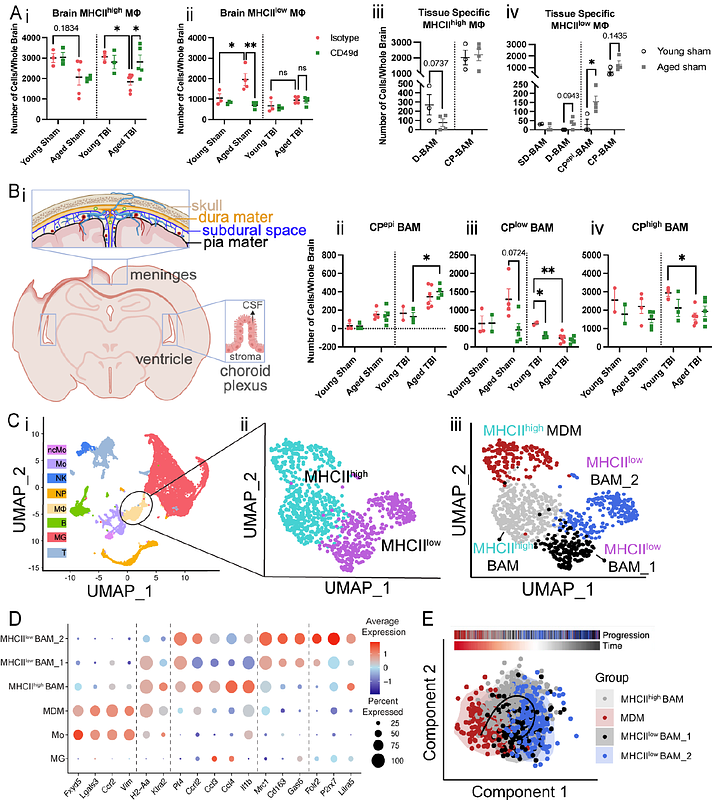antiCD49d Ab treatment ameliorates age-associated inflammatory response and mitigates CD8 T cell cytotoxicity after traumatic brain injury

antiCD49d Ab treatment ameliorates age-associated inflammatory response and mitigates CD8 T cell cytotoxicity after traumatic brain injury
Chen, Z.; Ford, K. P.; Islam, M. B. A. R.; Wan, H.; Han, H.; Ramakrishnan, A.; Brown, R. J.; Villanueva, V.; Wang, Y.; Davis, B. T.; Weiss, C.; Cui, W.; Gate, D.; Schwulst, S. J.
AbstractPatients aged 65 years and older account for an increasing proportion of patients with traumatic brain injury (TBI). Older TBI patients experience increased morbidity and mortality compared to their younger counterparts. Our prior data demonstrated that by blocking 4 integrin, anti-CD49d antibody (aCD49d Ab) abrogates CD8+ T-cell infiltration into the injured brain, improves survival, and attenuates neurocognitive deficits. Here, we aimed to uncover how aCD49d Ab treatment alters local cellular responses in the aged mouse brain. Consequently, mice incur age-associated toxic cytokine and chemokine responses long-term post-TBI. aCD49d Ab attenuates this response along with a T helper (Th)1/Th17 immunological shift and remediation of overall CD8+ T cell cytotoxicity. Furthermore, aCD49d Ab reduces CD8+ T cells exhibiting higher effector status, leading to reduced clonal expansion in aged, but not young, mouse brains with chronic TBI. Together, aCD49d Ab is a promising therapeutic strategy for treating TBI in older people.


